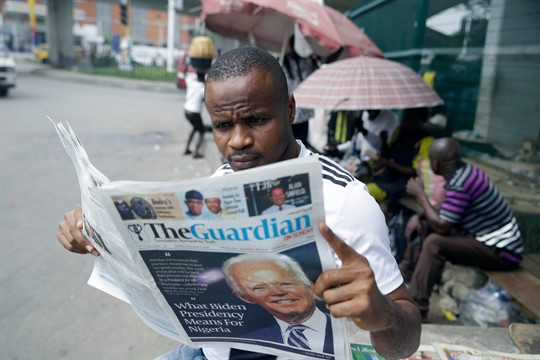
President Joe Biden will need to combine prudence with creativity to forge a more productive relationship with Nigeria, Africa’s most populous country and its largest economy. Notwithstanding Nigeria’s relative decline as a power within Africa, U.S.-Nigeria ties remain extensive by regional and continental standards. But they’ve been stymied in recent years by tensions over political corruption, Nigeria’s difficulties in managing the threat from the violent extremist group Boko Haram and the human rights record of Nigerian security forces.
Nigeria’s importance to U.S. policy considerations lies in its large population, geographic size and economic heft, all of which have historically provided some anchor of stability to the West African region. In addition to bilateral fora that include a U.S.-Nigeria Binational Commission and a Commercial and Investment Dialogue, the State Department and U.S. Agency for International Development allocated over $450 million in bilateral foreign assistance for Nigeria in 2020. This funding supported programs focused on health, good governance, agricultural development, law enforcement and justice sector cooperation. In addition, the Departments of Defense, Justice, Health and Human Services, and Homeland Security provided further technical and financial support of more than $50 million.
 Eurasia Press & News
Eurasia Press & News



